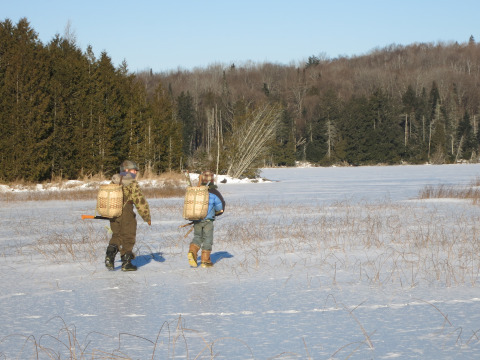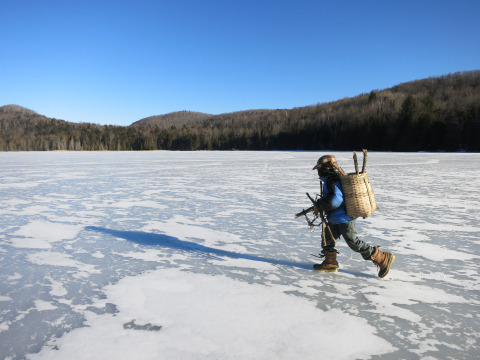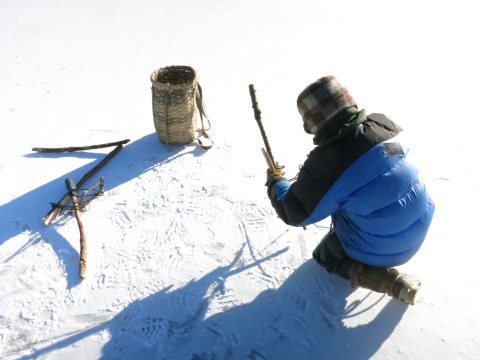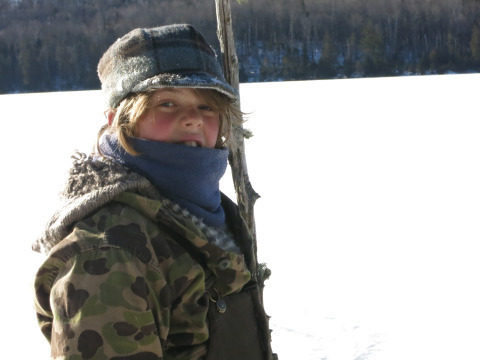Turning Our Backs to Separation
Listen: you are not yourself, you are crowds of others, you are as leaky a vessel as was ever made, you have spent vast amounts of your life as someone else, as people who died long ago, as people who never lived, as strangers you never met. The usual I we are given has all the tidy containment of the kind of character the realist novel specializes in and none of the porousness of our every waking moment, the loose threads, the strange dreams, the forgettings and misrememberings, the portions of a life lived through others’ stories, the incoherence and inconsistency…There are other ways of telling.
I can’t remember where or when I came across this passage by Rebecca Solnit, but it sure has stuck with me. I think what Solnit is talking about is the fallacy of separation. At least, that’s what I take from it, and as such, I can’t help but think about this passage both in relation to our educational path and our work with the land. (By-the-by, and for what it’s worth, I can’t stand the term living off the land. We are not living off the land. We are not even living on the land. We are living with the land. Or at least we’re trying to. Whew. Glad we got that settled)
Anyhow. I’ve been struck recently by the extent to which separation and compartmentalization have become the status quo. It’s easy to see how we do this with education by removing children from their natural surroundings of family, home, community and the natural world, compelling them to pass their days inside a classroom “learning” a preordained curriculum of facts and figures. (By-the-by, and for what it’s worth, I recently read this incredibly depressing story about the public schools in Burlington, VT)
But of course the vast majority of contemporary first world society is rooted in separation. We separate making a living from making a life, our leisure from our work, ourselves from the land, our minds from our bodies, our bodies from our spirits, the deaths of other living creatures from our own survival, our food from our health. We do not seem to make the connection that 40 years ago, at the advent of the subsidized, fencerow-to-fencerow agricultural policy that led to the proliferation of adulterated substances we’ve somehow gotten confused with food, barely 3% of Americans suffered from diabetes. Today, that number has quadrupled, and the CDC predicts that if current trends hold, by 2050 as much 33% of the US population will suffer from the disease. We do not seem to make the connection between these figures and the windfall profits reaped by drug makers who provide the drugs we need to stay alive enough to continue eating the stuff that’s making us sick and going to the jobs we need in order to pay for the health insurance that provides the drugs we need to stay alive enough to continue eating the stuff that’s… you get the point.
I sometimes struggle to articulate precisely why we live the life we do. I mean, I feel that this is how we were meant to live, and I do not doubt what I feel. But I cannot always explain it, at least not concisely. Not in a way that satisfies the common logic of the day, influenced as it is by the centers of profit and industry, which would rather that none of us think or feel too hard about how we are meant to live.
Food. Health. Mind. Body. Spirit. Learning. Music. Silence. Wind. Beavers. Cows. Trees. Heat. Cold. Soil. Blood. Friends. Work. Play. Life. Death. Things we cannot see, hear, smell, taste, or touch. Things we cannot know. The older I get, the closer I come to grasping how truly porous everything is, how one becomes the other. How the others become us and we become them, and how that porousness is where the sweet marrow of life is found. And I suspect that behind the cloak of our own flawed logic (grow our own food, freedom to pass our days as we wish, love of labor, and blah, blah, blah), the reason we have chosen this path is because it affords us, to the greatest extent possible, the simple luxury of acknowledging and experiencing that porousness. Of turning our backs to separation.
As is often the case, I feel as if I am struggling to articulate precisely what I mean. But maybe that’s ok. Because as Solnit points out, there are other ways of telling. Maybe we just have to learn how to listen.
Happy New Year.

Ben Hewitt's Blog
- Ben Hewitt's profile
- 37 followers







